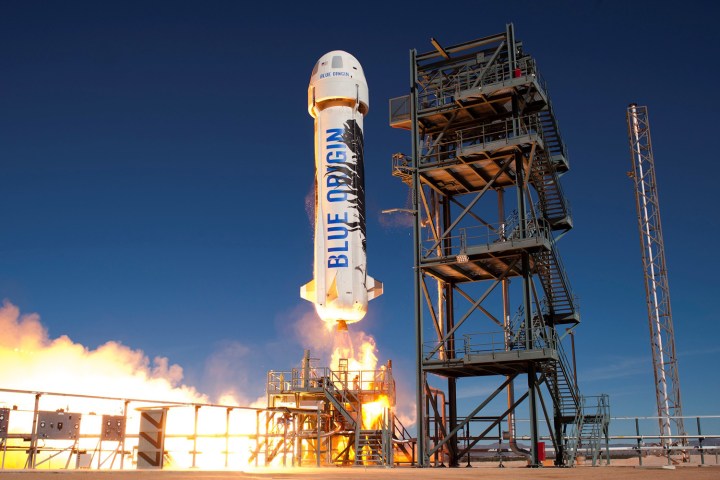
Bezos was discussing his space tourism plans at this week’s 32nd Space Symposium in Colorado Springs.
The company’s reusable New Shepard rocket has now achieved three flawless launches and landings, taking Blue Origin closer to its next goal of manned flights using its technology.
Bezos said training for Blue Origin space tourists will be minimal, suggesting it’ll be pretty much a case of sit-back-and-enjoy-the-ride (apart from the somersaulting bit, that is).
“For the suborbital mission, training is going to be relatively simple,” the Blue Origin and Amazon boss told GeekWire’s Alan Boyle. “One of the things that you have to do is emergency egress, so we’ll train people for that. One of the things you’ll have to be able to do is get out of your seat, and get back into your seat. We want people to be able to get out, float around, do somersaults, enjoy the microgravity, look out of those beautiful windows.”
Of course, Bezos himself is keen to get into space, though he says that rather than paying millions of dollars for a ride on a Russian Soyuz capsule as other wealthy business people have already done, he’d prefer to wait a year or two and do the trip with his own company.
“I want to go into space, but I want to do it in Blue Origin vehicles,” the CEO said, adding that while such a trip is a personal ambition, his immediate goal is to lower the cost of space access with reusable rocket technology. That, he believes, will pave the way for “millions” of people to one day live and work in space. “I want us to be a space-faring civilization,” he told his audience.
Moon trip
Bezos told Boyle he’d even been offered the chance of a trip around the moon aboard the Russian Soyuz spacecraft.
Explaining that Soyuz is “theoretically designed to do a lunar flyby and then re-enter,” Bezos said the trip would have cost around $200 million. “I said, ‘Yeah, but has it ever been tested?’ and they were like, ‘Well, no.’”
When the Blue Origin boss suggested the mission might be “a little risky,” they replied, “Well, for $400 million, we’ll test it for you.” Bezos passed on the offer.
It’s not known how much interested travelers will be asked to pay for a 12-minute Blue Origin suborbital adventure, though rival firm Virgin Galactic has been charging around $250,000 for reservations aboard its SpaceShipTwo rocket plane.

